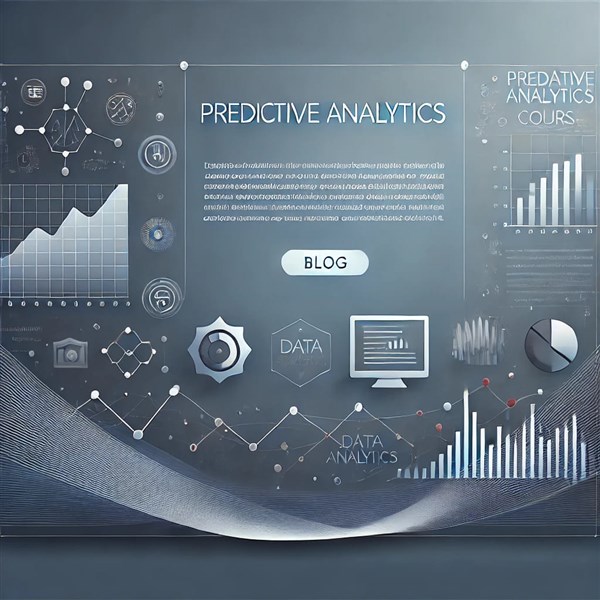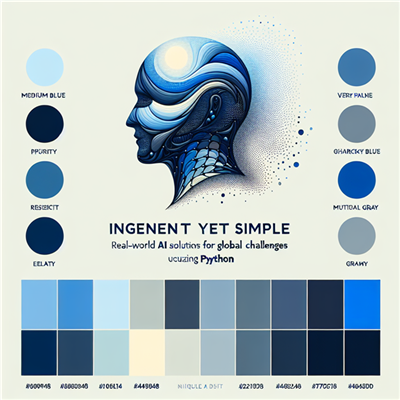
In today's data-driven world, organizations are increasingly relying on predictive analytics to make informed decisions, optimize processes, and gain a competitive edge. As a result, there is a growing demand for professionals skilled in predictive analytics. Pursuing a predictive analytics course not only enhances your knowledge but also equips you with a skill set that can significantly impact your career. In this blog post, we will explore the top skills you can expect to gain from a predictive analytics course, and how these skills can benefit you in various roles across different industries.
Skills You Will Gain from a Predictive Analytics Course
1. Understanding Data Fundamentals
At the core of predictive analytics lies a robust understanding of data fundamentals. A predictive analytics course will introduce you to key concepts such as:
- Data Types: Learning about various data types (qualitative vs. quantitative, structured vs. unstructured) helps you determine the best way to analyze and interpret the data.
- Data Sources: You will explore different data sources, including internal systems (CRM, ERP), external datasets, and web scraping techniques to gather relevant data for analysis.
- Data Quality: Understanding the importance of data quality is crucial. You will learn how to assess data integrity, accuracy, and completeness, as well as how to clean and preprocess data for analysis.
2. Statistical Analysis
Statistical analysis is a fundamental skill in predictive analytics. Through your course, you will learn:
- Descriptive Statistics: This includes measures of central tendency (mean, median, mode) and measures of dispersion (range, variance, standard deviation) to summarize and describe data sets.
- Inferential Statistics: You will be introduced to hypothesis testing, confidence intervals, and regression analysis, allowing you to make predictions and generalize findings from a sample to a population.
- Probability Theory: Understanding probability is essential for making predictions about future events based on historical data. You will learn concepts such as probability distributions, Bayes' theorem, and the law of large numbers.
3. Data Visualization Techniques
Data visualization is key to communicating insights derived from predictive analytics. A predictive analytics course will teach you how to effectively visualize data using tools and techniques such as:
- Graphical Representations: You will learn to create various types of charts (bar, line, pie, scatter plots) to present data visually.
- Dashboard Creation: Courses often include training on how to create interactive dashboards using tools like Tableau, Power BI, or Google Data Studio, which allows stakeholders to explore data insights dynamically.
- Storytelling with Data: You will gain insights into how to weave a narrative around your visualizations to engage your audience and convey the implications of your findings.
4. Predictive Modeling Techniques
Predictive modeling is the heart of predictive analytics. In your course, you will explore various techniques to build models that forecast future outcomes:
- Regression Analysis: You will learn how to use linear and logistic regression to model relationships between variables and make predictions.
- Machine Learning Algorithms: Courses often cover popular machine learning algorithms, including decision trees, random forests, support vector machines, and neural networks. You will gain hands-on experience in applying these algorithms to real-world datasets.
- Model Evaluation and Tuning: Understanding how to evaluate model performance using metrics like accuracy, precision, recall, and F1 score is essential. You will learn techniques for model tuning, including cross-validation and hyperparameter optimization.
5. Programming Skills
Programming skills are vital for effectively working with data and implementing predictive analytics solutions. In a predictive analytics course, you may learn languages such as:
- Python: Python is widely used for data analysis and machine learning. You will learn libraries like Pandas for data manipulation, NumPy for numerical analysis, and scikit-learn for building predictive models.
- R: R is another popular programming language in data science. You will explore its various packages for statistical analysis, visualization, and machine learning.
- SQL: Knowledge of SQL (Structured Query Language) is crucial for retrieving and manipulating data stored in relational databases. You will learn how to write complex queries to extract relevant datasets for analysis.
6. Business Acumen
While technical skills are essential, understanding the business context in which predictive analytics is applied is equally important. A good predictive analytics course will emphasize:
- Business Problem Solving: You will learn to identify and frame business problems that can be addressed through predictive analytics, ensuring that your analyses have a practical impact.
- Domain Knowledge: Depending on the industry you work in, understanding domain-specific knowledge (such as finance, marketing, healthcare, etc.) will help you make more relevant predictions and recommendations.
- Stakeholder Engagement: You will gain skills in communicating your findings to non-technical stakeholders, helping them understand the implications of your analysis and how it can inform decision-making.
7. Ethical Considerations in Data Analysis
In today's data-driven world, ethical considerations are paramount. A predictive analytics course will cover:
- Data Privacy: Understanding the importance of data privacy and compliance with regulations (such as GDPR) when collecting, storing, and analyzing data.
- Bias and Fairness: You will learn about the risks of bias in data collection and model development and how to ensure fairness in your predictive models.
- Responsible Data Use: Understanding the ethical implications of your analysis and ensuring that data is used responsibly and transparently.
Conclusion
In conclusion, a predictive analytics course offers a wealth of knowledge and skills that are essential in today's data-driven landscape. From mastering data fundamentals and statistical analysis to developing programming skills and understanding ethical considerations, the benefits are manifold. By acquiring these skills, you position yourself as a valuable asset to organizations seeking to harness the power of predictive analytics to drive their decision-making processes. Whether you are a beginner looking to enter the field or an experienced professional aiming to upskill, a predictive analytics course can significantly enhance your career prospects and effectiveness in the modern workplace.
Investing in a predictive analytics course can equip you with the necessary skills to leverage data for strategic decision-making. Whether you choose to attend predictive analytics classes in person or opt for predictive analytics training online, the important thing is to gain the skills that will make you a valuable asset in today's data-driven world.
Koenig Solutions is a leading IT training company that offers certifications in top technology courses, including predictive analytics.







COMMENT